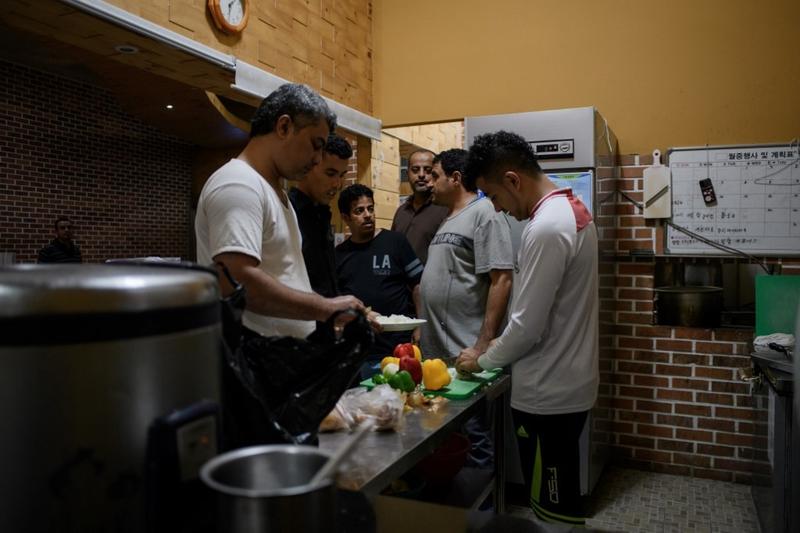 In this photo taken on July 4, 2018, Yemeni asylum seekers prepare lunch at the Olle Tourist Hotel in Jeju, South Korea. (PHOTO / AFP)
In this photo taken on July 4, 2018, Yemeni asylum seekers prepare lunch at the Olle Tourist Hotel in Jeju, South Korea. (PHOTO / AFP)
SEOUL - South Korea has accepted just 164 asylum seekers this year from nearly 6,000 who applied despite coronavirus travel curbs, government data showed.
Immigration is a contentious issue in South Korea, where many pride themselves on ethnic homogeneity, even as its population of 51 million rapidly ages and the labor force shrivels.
The figure of 5,896 applicants for refugee status between January and August was down about 36 percent from the corresponding period last year, data from the justice ministry showed last week.
Russians topped the list of applicants at nearly 18 percent, followed by people from Egypt, Kazakhstan, Malaysia and India.
The figure of 5,896 applicants for refugee status between January and August was down about 36 percent from the corresponding period last year, data from the justice ministry showed last week
ALSO READ: Tougher US asylum policy follows in Europe's footsteps
Only about 4 percent of the 4,019 who completed the screening process were accepted or granted residency for humanitarian reasons, although not recognized as refugees, a rate less than the 6 percent of 2019 and 16 percent of 2018, the data showed.
South Korea began accepting refugee applications in 1994 in line with a UN refugee convention. The number of asylum seekers has risen sharply since it became the first Asian nation to adopt its own refugee law in 2013, peaking at 16,173 in 2018.
But the government clamped down after a sudden spike in Yemeni arrivals in the southern resort island of Jeju that year stoked fears over a possible rise in crime and other social ills.
Defectors from neighboring North Korea are not regarded as asylum seekers and automatically receive citizenship.
READ MORE: US enacts plan to send Mexican asylum seekers to Guatemala
In Europe, although asylum applications have also plummeted this year amid border closures against the virus, many countries have sheltered hundreds of thousands of refugees stricken by war and poverty.
But few Asian nations, including Japan, have been keen to accept more refugees.
New York-based Human Rights Watch criticized Seoul’s strict refugee policy this year, urging more acceptance and transparency in application reviews.
The justice ministry did not immediately respond to requests for comment.


